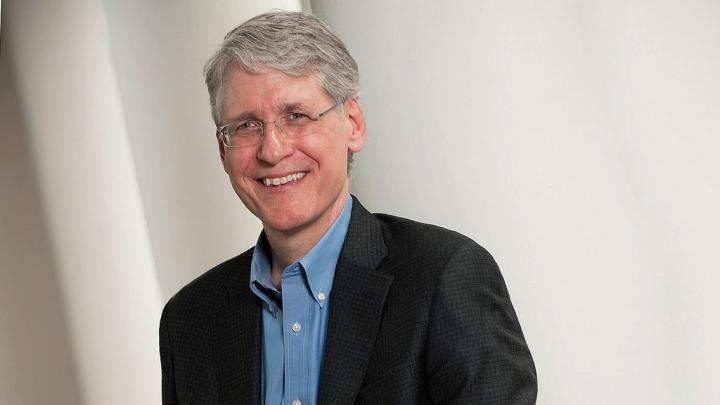The first time Smart professor of law Jon Hanson lived on wheels, he was managing a restaurant and sharing a trailer with his high-school sweetheart, Kathleen. The newlyweds had bought the trailer cheap and persuaded their shop teacher to let them fix it up during class senior year. Neither planned to attend college. That changed after Hanson’s father died, when something jumped out among his father’s few possessions: his books. Applying to Rice on Kathleen’s suggestion, Hanson got in and soared, earning a fellowship for research in Europe. (They traveled in a camper van there, later taking their three kids across America in an RV.) Then on to Yale—he to the law school, and Kathleen to the college. By Hanson’s “2L” year, he’d coauthored his first law-review article, and was off to the scholarly races. At Harvard, Hanson stands out for connecting law to the mind sciences and for his approach to legal education. Teaching 1L torts, the three-time Sacks-Freund teaching-award winner bucks the case-churning norm to spend the semester drilling down on a handful—tracing how each case reveals a “web” of factors that have perpetuated inequities through the years. Last year, with Jacob Lipton, J.D. ’14, he launched the “Systemic Justice Project” and two accompanying courses to allow students to plumb the sources of law-related social problems—and tackle problems of their own choosing. Students adore him. “Once you’ve encountered him, you cannot leave without being impacted,” says Ariel Eckblad, L ’16. So Hanson hopes. Law school, he argues, “ought to be a place” where students study the problems that brought them there—and learn “the tools to take those problems on.”
Harvard Portrait: Jon Hanson

Jon Hanson
Photograph by Stu Rosner
You might also like
Breaking Bread
Alexander Heffner ’12 plumbs the state of democracy.
Reading the Winds
Thai sailor Sophia Montgomery competes in the Olympics.
Chinese Trade Dragons
How Will China’s Rapid Growth in the Clean Technology Industry Reshape U.S.-China Policy?
Most popular
More to explore
Harvard Philosophy Professor Alison Simmons on "Being a Minded Thing"
A philosopher on perception, the canon, and being “a minded thing”







